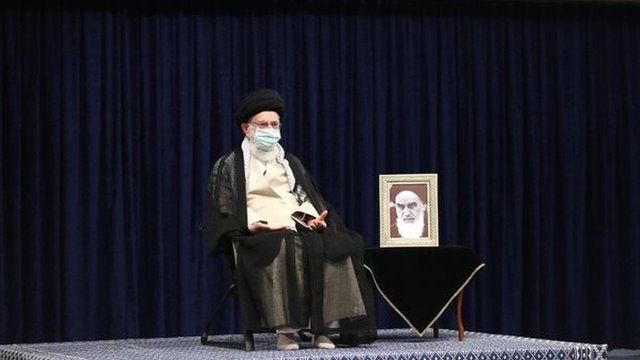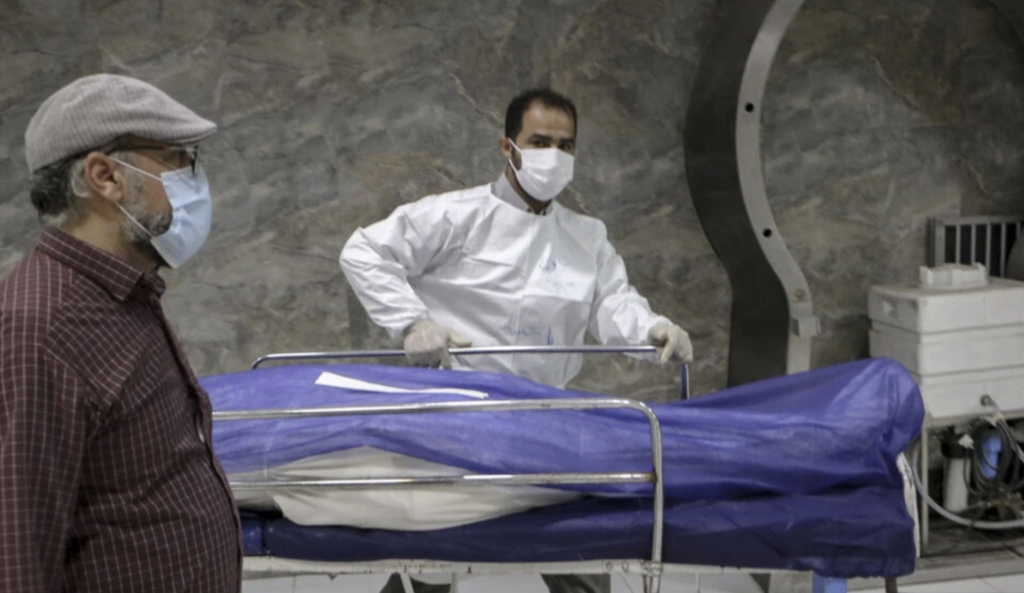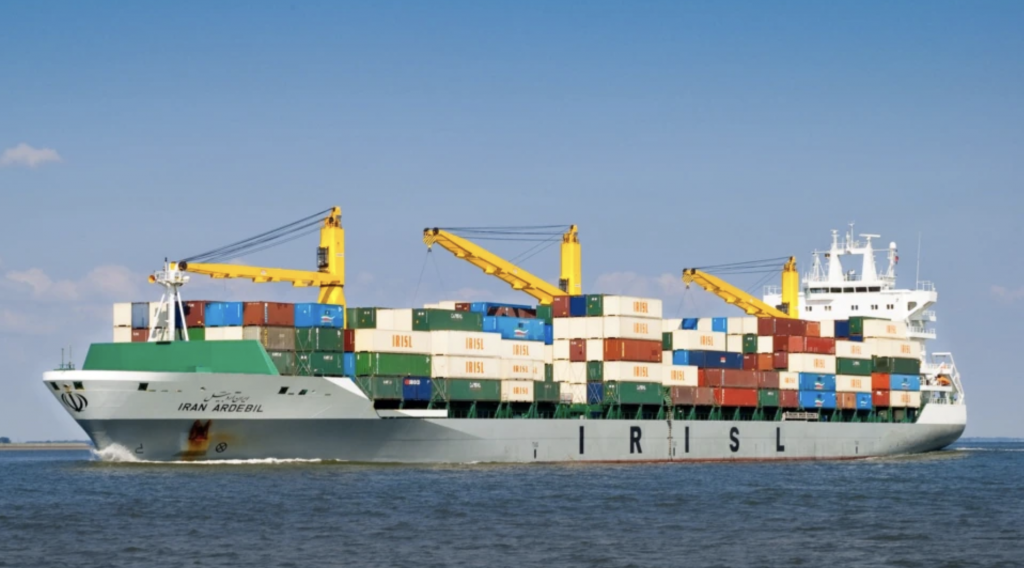
China’s Unclear, Shifting Policy Towards Iran
The editorial of Jahan Sanat focuses on China’s relationship with Iran and how it is used by China as a leverage against the United States and the West.
While all member countries of the nuclear deal (JCPOA) have a clear, transparent view towards Iran’s nuclear program and seek to resolve the issue, China has been relatively silent in this regard for a long time. It seems that China’s policy towards Iran is nothing but silence.
China, of course, as a big economic country in the region and the world, has had an acceptable relationship with Iran in recent years and has tried to enhance this relationship in the fields of politics, economy and energy.
China’s active presence in the JCPOA shows that it has played a relatively acceptable role in resolving the disputes between Iran and Western countries, particularly the United States. But China’s policy towards Iran has always been vague, preferring that Iran’s relations with Western countries regarding the JCPOA remain unstable and volatile thus using Iran as a leverage against the United States and the West.
In its media, China has always acted ambiguously and hasn’t publicized its policies towards Iran, trying to take an undefined stance. In some cases, when the UN Security Council was going to issue a resolution against Iran and its allies like Syria, China vetoed the resolutions – an acceptable and positive move.
But China’s relationship with the United States isn’t that stable, while its political power to influence the United States and Western countries is less than Russia. So, it pursues an unclear policy towards Iran, seeking to exploit Iran’s disputes with Western countries in the JCPOA and upset the West and the United States through Iran.
As for the economic sanctions against Iran, we can say that China has tried to pressure the United States to lift some sanctions. But China wants the sanctions to be lifted in such a way that Iran always remains dependent on China economically. That is why China is first and foremost after its own economic interests and is not willing to help in the lifting of all sanctions against Iran.
Rampant Inflation, Outcome of Increasing Salaries
The editorial of Tejarat penned by Jafar Ghaderi, member of the Parliament’s Budget and Planning Commission, asks why the current government cannot raise its employees’ salaries because of its budget deficit, while blaming the previous government for unfairly and illegally raising salaries.
For a long time we have witnessed constant demands for increasing salaries of government employees without considering the consequences. Judiciary staff, teachers, university staff, nurses, retirees, etc. all expect to have their salaries raised by the government.
Given inflation and high prices, it is everyone’s right to expect a raise in salaries, but the problem is that the government is now printing money to pay for its expenses. Now that the government is facing a severe budget deficit, raising expectations regarding increasing salaries will result in nothing but an increase in inflation and prices which will in turn decrease the purchasing power of government employees.
On the other hand, salaried people must be supported while inflation and prices are skyrocketing, so a solution must be found to do this without increasing the government’s expenses significantly. In this regard, the Budget and Planning Organization must offer a bill to amend the law so we can move towards a more balanced system of payments for government employees. After all, by no means should there be some organizations whose employees receive astronomical salaries, while the salaries of other organizations’ staff push them below the poverty line.
The problem we are dealing with now is that during the last months of the previous government, salaries were increased – an act that was not only unfair, it was also against the law. As such, in the final days of the previous government, all demands for raising salaries were met. And this shows nothing but dishonesty on the part of the previous government which imposed a financial burden on the current government.
Losing a Big Opportunity
Iranian President Ebrahim Raisi did not go to New York for the UN General Assembly, which, according to Aftab Yazd’s editorial, meant losing a great opportunity for Iran and its diplomatic apparatus.
Among many international assemblies that are held by high-ranking officials in the world, the UN General Assembly is of particular significance. Throughout history, the sideline meetings that have taken place alongside the General Assembly have always been important for countries. That is why leaders of the world go to New York for the General Assembly to have face to face meetings with other world leaders and achieve their goals.
In the history of the Iranian republic, the late Hashemi Rafsanjani and other former presidents went to New York and were personally involved in the process. Delivering speeches in the General Assembly, holding press conferences, personal meetings with other countries’ political authorities and above all meeting with UN officials have all been opportunities for expressing views and pursuing bilateral issues.
During the past two years, due to COVID-19, the assembly has been held both virtually and as regular sessions so that all countries can express their own views. This year, Iran’s new President Ebrahim Raisi, for some reason, didn’t go to New York and delivered his speech virtually.
It is expected that new presidents will go to New York to acquaint themselves with the international atmosphere and defend their countries’ views, while holding meetings with other countries’ officials. Raisi not going to New York meant losing a great opportunity for his government and foreign policy. By attending the General Assembly, he could have met with Asian, African and European leaders to expand trade deals and lift the economic sanctions. Iran should have announced its official position towards the nuclear deal and Vienna talks in New York. But this opportunity was missed.
In Raisi’s speech, there was no positive point. It was obvious that the Iranian Foreign Ministry and the president’s advisor had not prepared a constructive speech for him. Instead of reiterating statements that were more like headlines, Raisi should have taken a more official stance towards ongoing issues in the world.
Economic Opportunities Sacrificed to Political Disputes
The editorial of Tejarat argues that now that Iran has joined the Shanghai Cooperation Organization (SCO), it should not expect the member countries to circumvent the economic sanctions just to help Iran.
Iran joined the SCO, but membership in this pact requires cooperation and each member is committed to following its requirements. If developing economic relations is the aim of joining the SCO, then Iran must consider different aspects of investment as well as the obstacles that must be lifted.
Even if there are legal obstacles in this regard, they must be lifted, and facilities must be offered to realize the goals of the pact. So, working within the framework of a big organization like the SCO which represents 25 percent of the global economy and includes two big members like China and Russia has its own requirements.
When we talk about China, we are talking about big Chinese industries, companies, economic power, and big Chinese banks – all of which are not allowed to circumvent the sanctions against Iran.
Now that Iran has joined the SCO and has economic expectations from joining this pact, it must take measures to lift sanctions and join the FATF. Some say that Iran’s membership in the SCO can help in circumventing the sanctions and boost Iran’s economy. But all countries follow economic laws and regulations and are after a win-win situation in which the interests of all sides are provided for.
Iran must invest in export development and identify markets for its exports; this is the goal of joining treaties and pacts.
If Iran’s goal in becoming a member in these pacts is boosting its economy and exiting its current dire economic situation, it must be realistic and not expect other countries to ignore their own economic principles just to cooperate with Iran.
Iran shouldn’t claim that now that it has become a full member of the SCO, Chinese companies will circumvent the sanctions to cooperate with Iran. These companies will not do so as they have wide-ranging interests in Western countries.
What is important to note is that Iran usually sacrifices such economic opportunities due to the political differences it has with Western countries.

Khamenei Calls for Youths to Take Up Jihad in Cyberspace

Iranian Supreme Leader Ali Khamenei in a video speech called for youths to start jihad in cyberspace. During a Shiite mourning ceremony held on the occasion of Arbaeen, Khamenei told Tehran University students that “today in cyberspace, you can disseminate right and correct thoughts and respond to problems and take part in jihad in the real sense of the word.”
The Iranian supreme leader said that the youth must “defuse” the “propaganda attacks” of the “enemies against the Iranian people.”
Khamenei encourages his supporters to be active on the internet even though in recent years Twitter and Facebook have blocked many Iranian users’ accounts for violating the laws of these platforms. These accounts were directly or indirectly linked to the Iranian government.
This is not the first time that Khamenei has expressed his views on activities in cyberspace. Earlier this year, he had slammed officials for not monitoring cyberspace enough and called for greater regulation.
In recent years, the Iranian government has set up many special entities for monitoring cyberspace and overseeing website content. Khamenei also ordered the establishment of the National Cyberspace Center which is meant to decide and take measures against what is deemed by the Iranian government as “harmful content on the internet.”
Iran is also building up a “national internet network” which is supposed to exercise more oversight and control over cyberspace.
While the Iranian government filters many popular social networks including Facebook, Twitter and Telegram, many officials have and use official accounts on these platforms.
Imposing restrictions on and shutting down the internet is one of the problems that Iranian users have to constantly deal with. Although connection to the internet has become vital for many businesses, this is not factored in decisions made by government bodies in this regard.
VPN Servers Are Getting Blocked in Iran

Iranian social network users say that many VPN servers are gradually getting filtered in the country. Now, the question is: has the government’s so-called plan for protecting cyberspace, which to many is nothing but filtering and censoring the internet, already started?
As accessing social networks is getting more difficult, Iran’s Statistical Center has stated that 11 million jobs depend on social networks and Instagram’s share from online businesses is 83 percent. Other social networks and messenger apps that have a considerable share in online businesses in Iran are WhatsApp and Telegram.
The share of domestic messengers in online businesses is less than 5 percent.
The news of shutting down and temporarily blocking the internet has created concern among social network users that the government’s so-called plan for protecting cyberspace is already being implemented.
Tejarat News reported that the Iranian Statistical Center recently issued a report showing that 65 percent of Iranian people use social networks and messenger apps, while 20 percent of users have online businesses. It means that 11 million Iranian jobs rely on the internet.
Many social network users who have online businesses are concerned that blocking and filtering the internet will create problems for them. Furthermore, now that cryptocurrency markets have become popular among people, filtering VPNs will hurt those markets as well.
Because of the sanctions against Iran, many websites are not accessible to Iranians and those who want to access information must use VPNs. And now with the filtering of VPNs, this will not be possible any longer.
Internet experts had earlier warned against the fallout of the bill to protect cyberspace, seeing it as heightening internet censorship in Iran.
If implemented in its current form, the bill will result in the filtering of internet services including Google, Instagram and WhatsApp.
110,000 Additional Deaths in the Past Six Months Raisi Promises 70 Percent Vaccination of Entire Population in 4 Days!

According to the National Organization of Civil Registration of Iran (NOCR), there have been more than 290,000 deaths in the past six months (the first half of the Iranian year starting on March 21), while during the same period in years before the coronavirus outbreak, the number of deaths was about 181,000.
NOCR’s archives show that in 2016, the number of deaths reached roughly 178,000 people in the first half of the Iranian year, and in 2017 to 2019, it was 181,000; 182,000; 186,000 respectively.
In the first of half of last year, this number reached 235,000 people.
Nonetheless, Iran’s official statistics report the number of COVID-19 victims at a much lower rate. According to the Health Ministry’s statistics, in the past six months, 56,000 people died 23,000 people died due to coronavirus from March-September, 2021.
Previously, some officials including those from Iran’s Medical Council of, had asserted that the real number of deaths due to COVID-19 is two to three times more. In the meantime, Iranian officials and authorities keep making big promises that remain unfulfilled.
Recently, President Ebrahim Raisi made a pledge that in four days about 70 percent of Iran’s entire population would be vaccinated against coronavirus. But even though only one fifth of Iranians have been vaccinated so far, he didn’t make it clear how 70 percent of people would be vaccinated in just four days.
According to the Health Ministry’s official statistics, so far about 16 million people have received both doses of the vaccine, which comprises about 18 percent of the entire population of the country.
This is not the first time that Iranian officials have made unfulfilled promises. Former Health Minister Saeed Namaki had made many empty promises in this regard.
Mohammad Mokhber, Raisi’s first vice president, who has been overseeing the production of Iranian vaccines, had promised to deliver 50 million doses of vaccines by the end of the summer, of which only 10 million doses were produced.
61 Percent Increase in Non-oil Exports in Past Six months; Record-breaking Imports Last Month

Recent statistics published in the Iranian Customs Office’s report show a 61 percent increase on non-oil exports in the first half of the Iranian year (starting March 21) compared to the same period last year. The report states that in the past six months, Iran has made $21.8 billion in non-oil exports. The Iranian Customs Office, of course, categorizes gasoline, propane, butane, and even natural gas under non-oil exports.
Although the Iranian Customs Office did not release the details of the 61 percent growth in exports, the statistics of the Trades Development Organization show that the growth in value of Iran’s non-oil exports is due to the increase in price of oil and petrochemical products as well as the doubling of prices of mineral products.
These products’ share in Iran’s non-oil exports is 56 percent.
The other noteworthy point in the Customs Office’s report is the significant leap in imports during the last Iranian month, during which goods worth $6.6 billion were imported – the highest in the past six months.
According to the Customs Office’s statistics, 30 percent of Iran’s entire exports went to China while Iraq accounted for 17 percent, Turkey 11 percent, UAE and Afghanistan with 10 percent each stood next.
Furthermore, the UAE with 31 percent, China with 21 percent and Turkey with 10 percent have the highest shares in Iran’s imports. Meanwhile, statistics published by China’s Customs Office show that imports from Iran during the first eight months of 2021 reached $4.34 billion, with a 12.2 percent increase compared to the same period last year.
Although Iran’s exports to China have declined during the past two years, it has been on the rise during this year’s second half.
China’s Customs Office claims that it has not received any oil shipments from Iran during the past eight months, but statistics released by tanker tracking companies show that during this period, Iran had sent 600,000 barrels of oil per day to China.
According to Reuters and Bloomberg, a large part of Iran’s oil is shipped to China through brokers and under the names of other countries such as Iraq, UAE, Oman, Indonesia and Malaysia.
